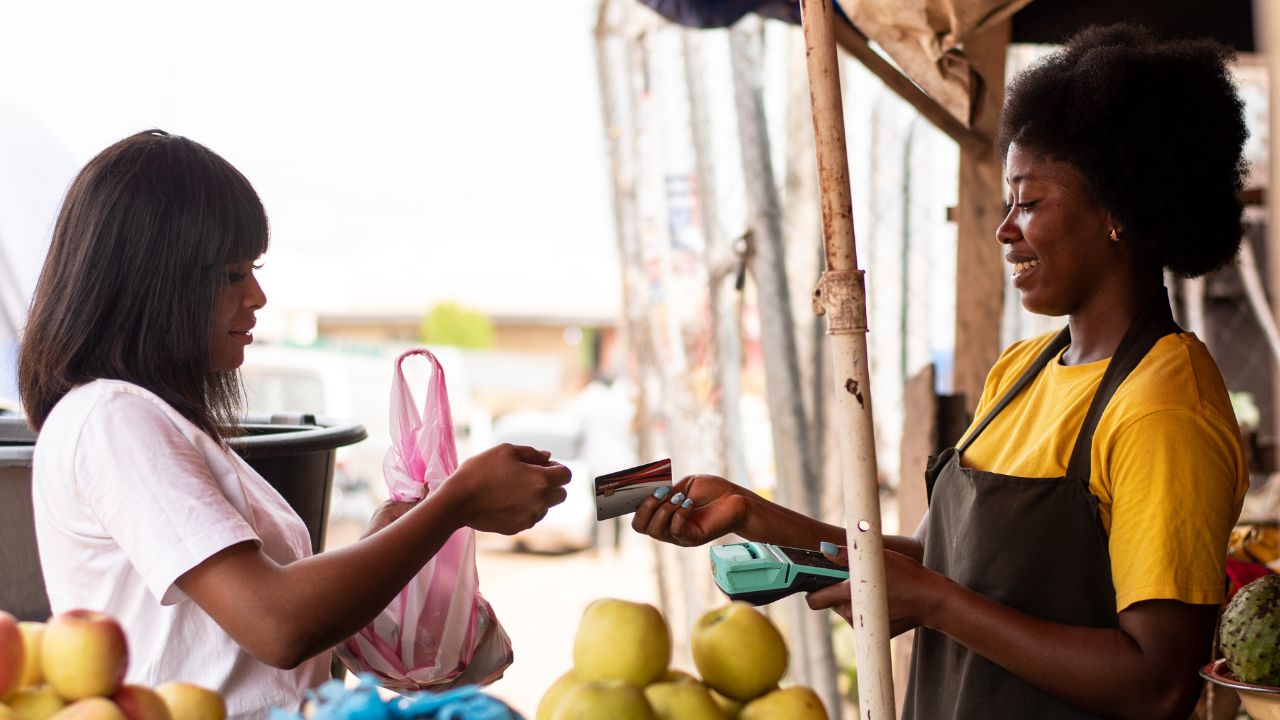The Spending Power And Behavior Of Nigerian Consumers

The spending power and behaviour of Nigerian consumers play a crucial role in shaping the country’s economy and attracting the attention of businesses both locally and internationally. As one of the largest economies in Africa, Nigeria offers immense potential for companies looking to tap into a vibrant and growing consumer market. Understanding the intricacies of Nigerian consumer behaviour, preferences, and the factors that influence their spending patterns is essential for businesses aiming to make strategic decisions and effectively target this diverse and dynamic consumer base.
Key Factors Driving Consumer Spending in Nigeria
The key factors driving consumer spending in Nigeria include disposable income levels, population growth, cultural influences, and technological advancements. These factors collectively shape consumer behaviour and preferences, influencing the types of goods and services Nigerians choose to spend their money on.
The country’s growing middle class, with increasing disposable incomes, contributes significantly to consumer demand. Additionally, urbanization, improved access to credit, and a desire for better living standards are also driving factors. Understanding these key factors helps businesses tailor their strategies and offerings to meet the needs of Nigerian consumers.
Economic Landscape: Understanding the Spending Power of Nigerian Consumers
GDP and Income Distribution in Nigeria
Nigeria’s Gross Domestic Product (GDP) is one of the largest in Africa, emphasizing its economic potential. However, income distribution remains unequal, with a significant wealth gap between different segments of society. This disparity has implications for consumer spending patterns and should be taken into account when analyzing the market.
Disposable Income and Purchasing Power of Nigerian Consumers
Disposable income plays a crucial role in determining the purchasing power of Nigerian consumers. Rising incomes, driven by a growing economy, contribute to increased spending. However, factors such as inflation, unemployment, and the cost of living also impact consumers’ ability to spend. Understanding the dynamics of disposable income helps businesses gauge the affordability of their products or services.
Consumer Behavior and Preferences: Insights into Nigerian Consumer Habits
Cultural Influences on Consumer Behavior in Nigeria
Nigeria’s diverse cultural landscape heavily influences consumer behaviour. Cultural values, traditions, and beliefs shape preferences for certain products and influence buying decisions. Understanding these cultural nuances is crucial for businesses to effectively position their offerings and tailor their marketing strategies accordingly.
Consumer Preferences for Local and Imported Goods
Nigerian consumers exhibit a mix of preferences for both local and imported goods. While some consumers prioritize supporting local industries and purchasing locally-made products, others are attracted to the perceived quality and status associated with imported goods. Understanding these preferences allows businesses to align their product offerings and marketing messages with consumer expectations.
Online Shopping and E-commerce Trends in Nigeria
The digital revolution is transforming consumer behaviour in Nigeria, with a growing trend towards online shopping and e-commerce. Increasing internet penetration and access to smartphones have opened new avenues for businesses to reach Nigerian consumers. Recognizing the evolving e-commerce landscape helps businesses adapt their strategies and leverage online platforms to cater to consumer demand.
Socio-Cultural Factors Influencing Consumer Spending Patterns in Nigeria
Impact of Demographic Factors on Consumer Behavior
Demographic factors such as age, gender, and income levels significantly influence consumer behaviour in Nigeria. Younger consumers, for example, may have different preferences and spending patterns compared to older generations. Recognizing these demographic nuances allows businesses to target specific consumer segments effectively.
Influence of Social Beliefs and Values on Buying Decisions
Social beliefs and values have a profound impact on the buying decisions of Nigerian consumers. Factors like religion, social status, and community influence and shape consumer behaviour. Understanding these influences helps businesses tailor their strategies and messaging to resonate with Nigerian consumers’ values and aspirations.
Role of Family and Community in Nigerian Consumer Culture
Family and community play a vital role in Nigerian consumer culture. Buying decisions are often influenced by the opinions and recommendations of family members and close-knit communities. Recognizing the importance of these social networks allows businesses to leverage word-of-mouth marketing and community engagement to build trust and credibility among Nigerian consumers.
Sector Analysis: Key Industries Driving Consumer Spending in Nigeria
Retail Industry: Consumer Goods and Supermarkets
When it comes to consumer spending in Nigeria, the retail industry plays a crucial role. Nigerians have a diverse range of consumer goods and supermarket options to choose from, ranging from local markets to modern retail outlets. The retail sector in Nigeria is driven by the demand for essential items such as food, clothing, and household goods. As the population grows and urbanization increases, the retail industry is expected to continue thriving.
Telecom and Technology: Mobile Devices and Internet Services
With the rise in technology adoption, the telecom and technology sector has become a major driver of consumer spending in Nigeria. The demand for mobile devices and internet services is skyrocketing as more Nigerians embrace the digital age. This has opened up opportunities for telecommunications companies, smartphone manufacturers, and internet service providers to tap into the growing market. As the country becomes more digitally connected, the telecom and technology sector is expected to experience further growth.
Automotive Industry: Cars and Transportation in Nigeria
The automotive industry in Nigeria has a significant impact on consumer spending, particularly concerning cars and transportation. Despite challenges such as high import duties and the prevalence of used vehicles, Nigerians have a strong desire for personal transportation. The demand for cars, motorcycles, and other means of transportation remains high, presenting opportunities for both local and international automotive companies. As the economy grows and infrastructure improves, the automotive industry will likely expand further.
Challenges and Opportunities: Navigating the Nigerian Consumer Market
Economic Challenges and Their Impacts on Consumer Spending
While there are immense opportunities in the Nigerian consumer market, businesses must also navigate various economic challenges. Factors such as inflation, currency fluctuations, and income inequality can impact consumer spending patterns. Businesses must stay informed about economic trends and adapt their strategies accordingly to effectively engage Nigerian consumers.
Legal and Regulatory Considerations for Businesses
Operating in Nigeria’s consumer market comes with legal and regulatory considerations. Businesses must comply with laws and regulations governing areas such as taxation, import/export, and consumer protection. Understanding and adhering to these regulations is essential to building trust with Nigerian consumers and avoiding legal setbacks.
Opportunities for Local and International Companies
Despite the challenges, there are numerous opportunities for both local and international companies in the Nigerian consumer market. The growing population, expanding middle class, and increasing urbanisation create fertile ground for businesses to thrive.
By understanding the local culture and consumer preferences and adapting their offerings accordingly, companies can successfully tap into the Nigerian market and capitalize on the opportunities available.
Strategies for Engaging Nigerian Consumers: Marketing and Branding Approaches
Cultural Sensitivity and Localization of Marketing Campaigns
When it comes to engaging Nigerian consumers, cultural sensitivity is key. Understanding the diverse cultural nuances of different regions in Nigeria and tailoring marketing campaigns accordingly can significantly enhance the brand’s appeal. Incorporating local languages, traditions, and values into marketing efforts can help establish a deeper connection with Nigerian consumers.
Building Trust and Establishing Relationships with Nigerian Consumers
Building trust is crucial for businesses to succeed in the Nigerian consumer market. Nigerians value personal relationships and loyalty in their interactions with businesses. By providing excellent customer service, maintaining transparency, and delivering on promises, companies can establish long-lasting relationships with Nigerian consumers. Word-of-mouth marketing is particularly influential in Nigeria, making customer satisfaction and positive experiences essential.
Digital Marketing and Social Media Strategies in Nigeria
Digital marketing and social media have become powerful tools for engaging Nigerian consumers. Nigerians are active users of social media platforms such as Facebook, Instagram, and Twitter. Leveraging these platforms to create engaging content, run targeted advertisements, and interact with consumers can help businesses reach their target audience effectively. Embracing digital marketing strategies is crucial for staying competitive in the Nigerian consumer market.
Read more related articles
Do Nigerian consumers pay for digital products, and how do you win them?
Gamification As a Marketing Tactic To Win In The African Market
How To Capture and Engage Online Customers: Strategies for the E-commerce Industry
Strategies For Boosting Financial Growth In Your Business
The Rise of Fintech Products in the African Market, and Why?



